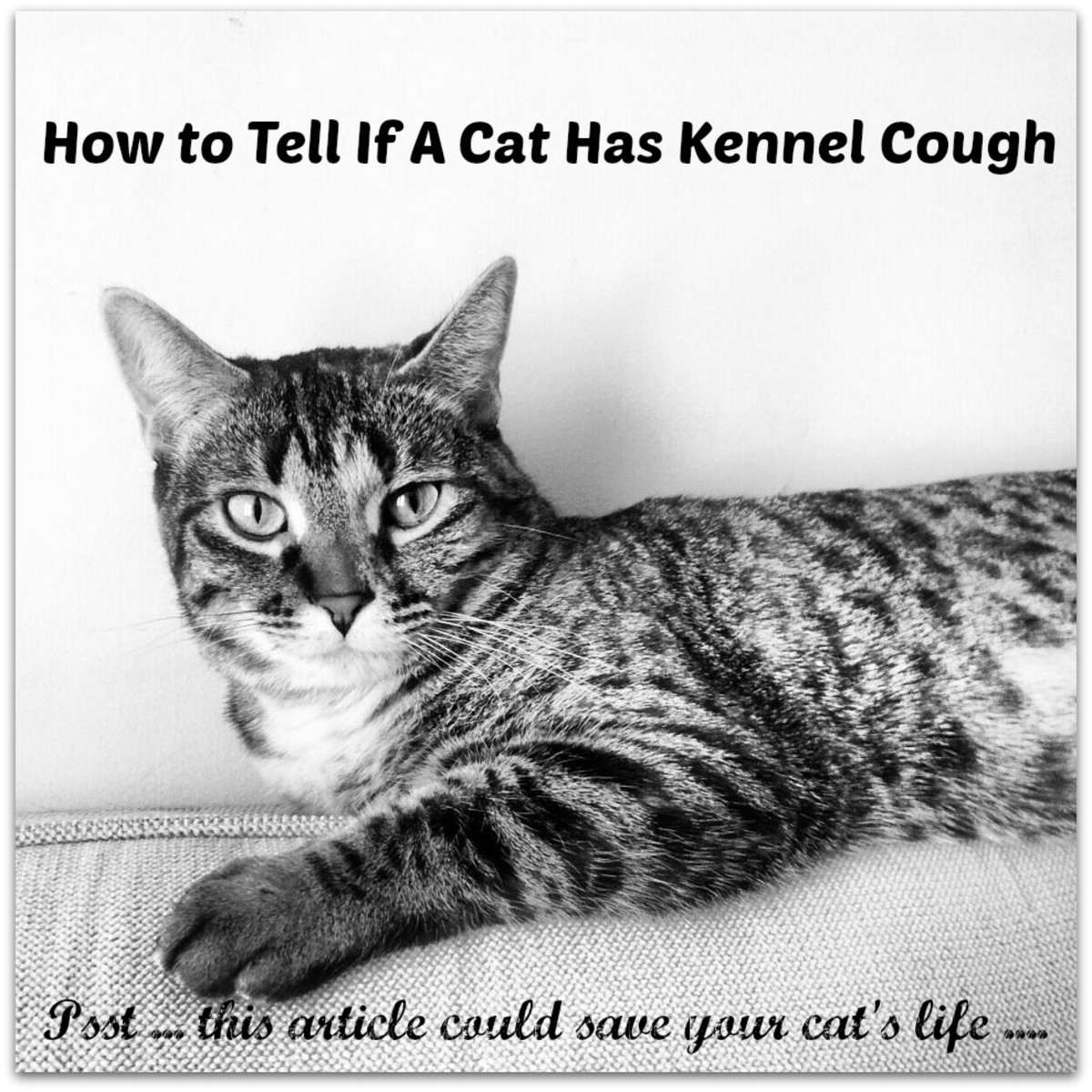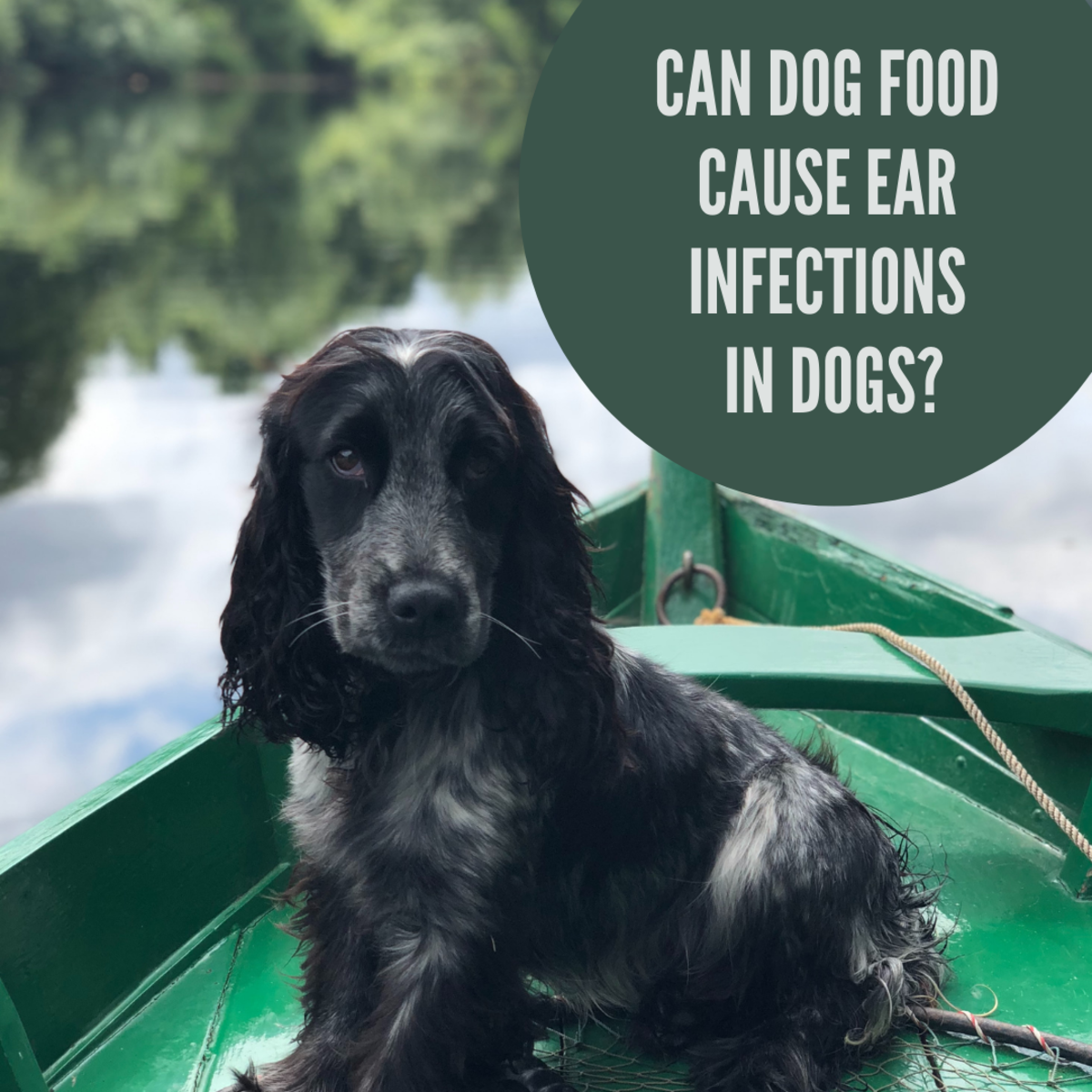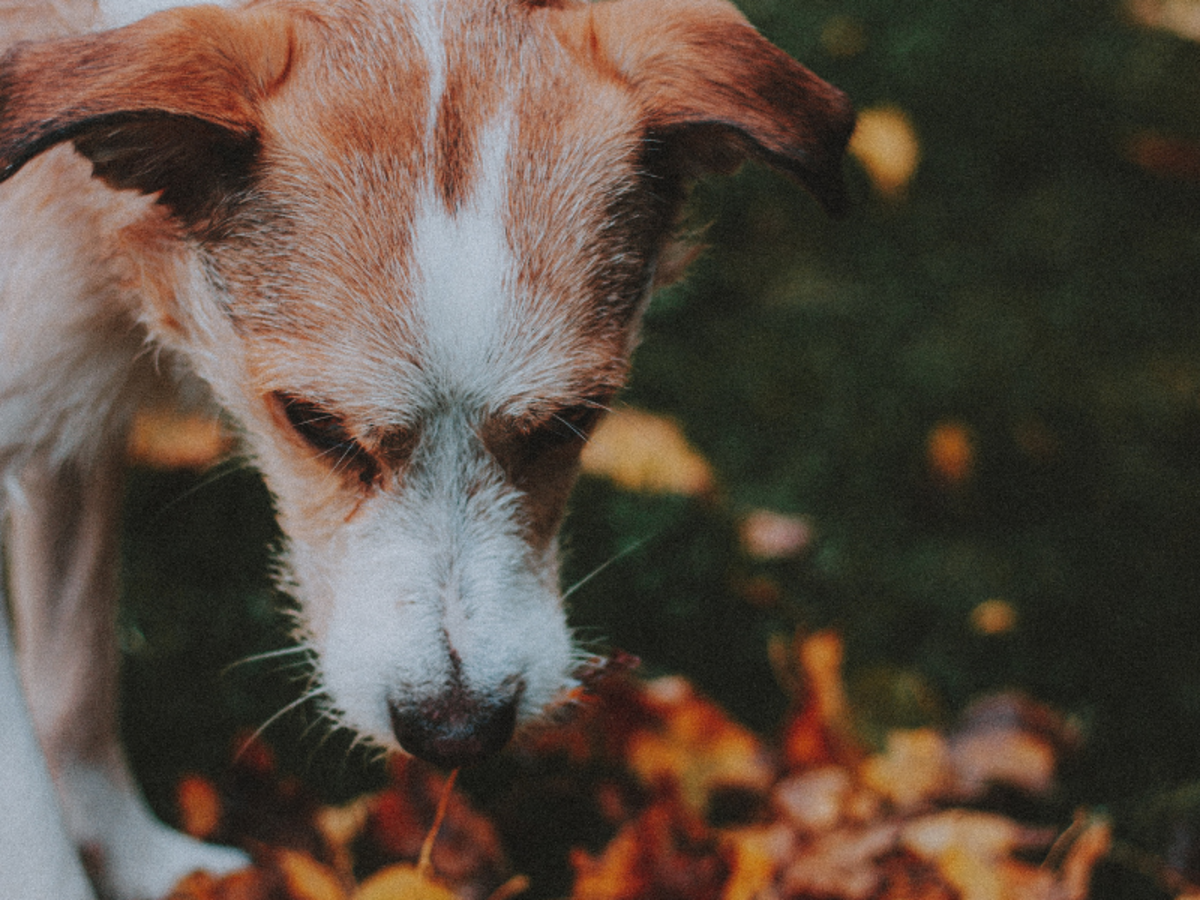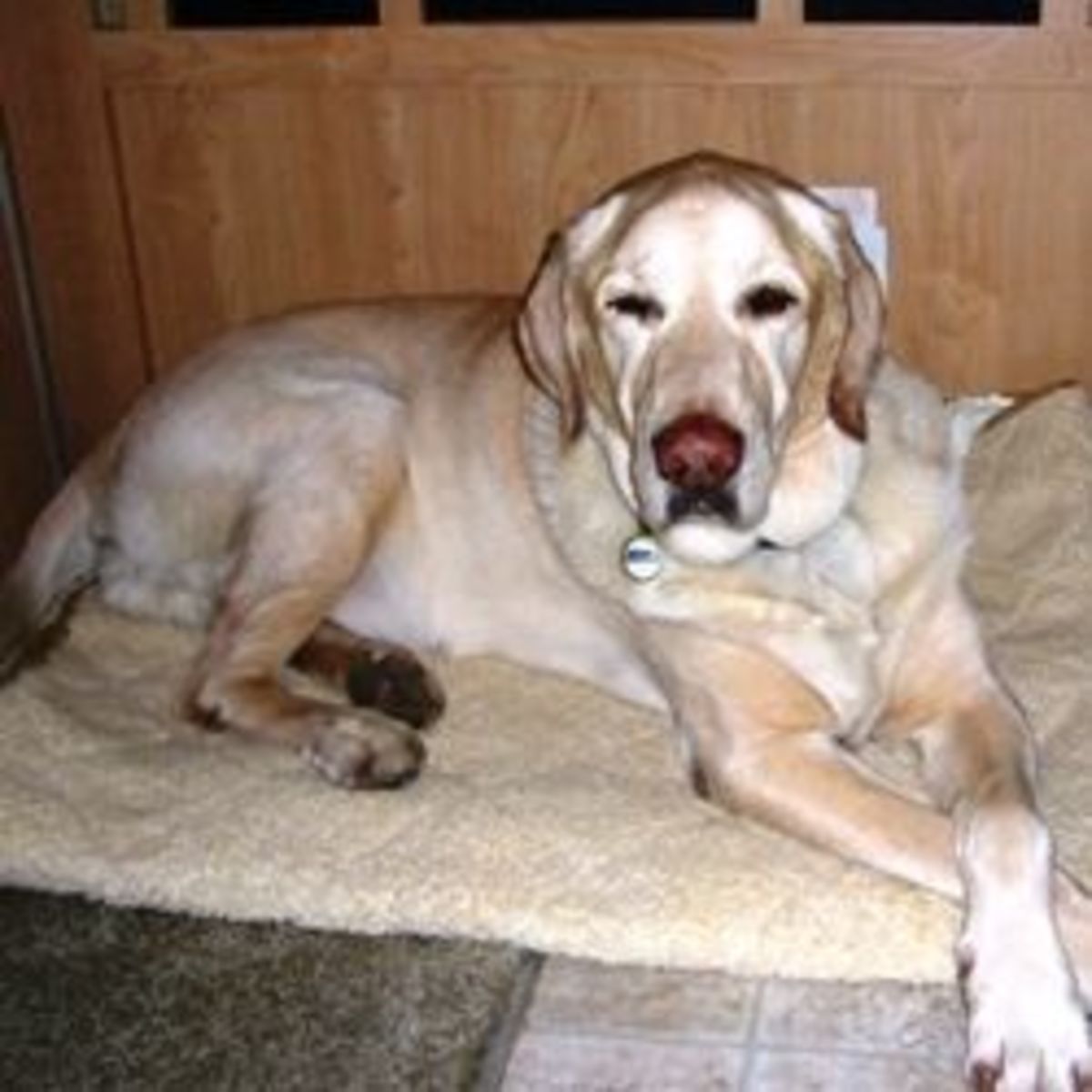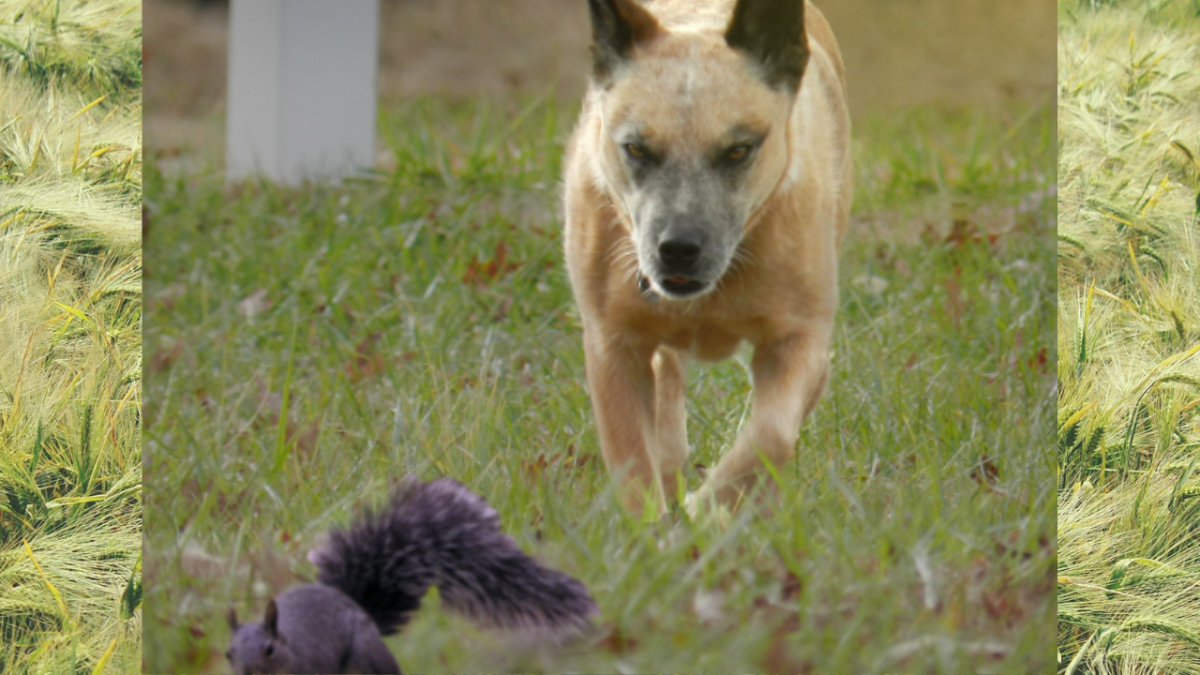Kennel Cough - Our Experience
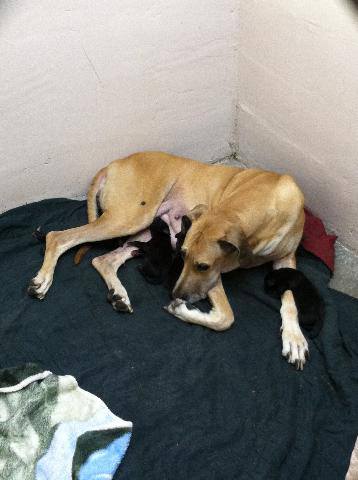
Our Dogs Have Kennel Cough
In all the years I’ve owned dogs, I’ve never had one suffer from kennel cough…until now. Presently, I own three dogs: a Great Dane named Hamlet, a Great Dane named Grendel, and a Basset hound named Sparky. My daughter, who lives practically next door, also has a Great Dane, Kayla. Right now, Sparky and Kayla both have kennel cough, and Grendel is just getting over it. Week before last, all four dogs were kenneled while we were on vacation in Florida. My three dogs stayed at one kennel, and Kayla stayed at another. While Kayla was at the kennel, she had puppies. All the dogs were brought home last Saturday. By Monday or Tuesday, Grendel began coughing. We had given the dogs some new chews, and at first, I thought Grendel was choking on a small piece of rawhide. On Thursday, Sparky began coughing, and Kayla started on Friday. I felt sure the dogs had kennel cough, but I wasn’t positive. I called my vet Friday night, and she agreed that Sparky was exhibiting symptoms of kennel cough. This morning, hubby took the hound dog to see the vet, and a kennel cough diagnosis was confirmed. Kayla went to see her vet today, and she was kept at the clinic. She’s much sicker than my dogs were. The pups are having to be bottle fed since their mom is in the hospital with kennel cough.
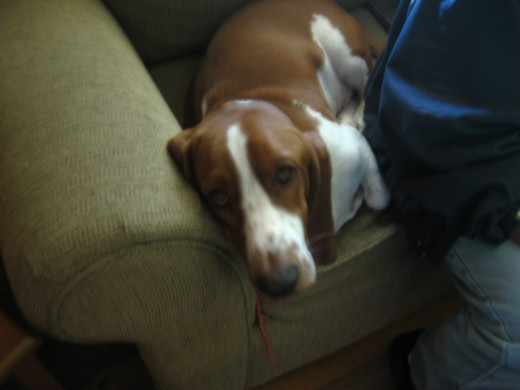
What is Kennel Cough
What is kennel cough? The actual term is canine infectious tracheobronchitis. The way the veterinarian explained it, it’s not so much a specific disease as it is a catch-all term that describes a collection of the same or closely related symptoms. The condition is similar to what we humans call a chest cold or bronchitis. Kennel cough can be a viral infection or a bacterial infection, and many times, the condition is caused by a combination of a virus and a bacterium. The infectious agent or agents affect the bronchial tubes, the voice box, and the trachea (windpipe).
The condition gets its name because it’s common in kennels and other places where numerous dogs are in close proximity to each other: dog shows, dog parks, animal shelters, breeding facilities, grooming shops, and dog daycare facilities. Kennel cough is extremely contagious and can be spread from dog to dog easily. It can also be spread by contaminated surfaces like bedding, food or water bowls, and dog toys. Before Kayla showed signs of kennel cough, we were concerned about one of our infected dogs spreading the illness to Kayla and her puppies, through us. My grandsons are here every day, playing with our furkids. The vet told us that the boys could take back kennel cough germs to their house by handling our sick dogs, on their hands or on their clothing.
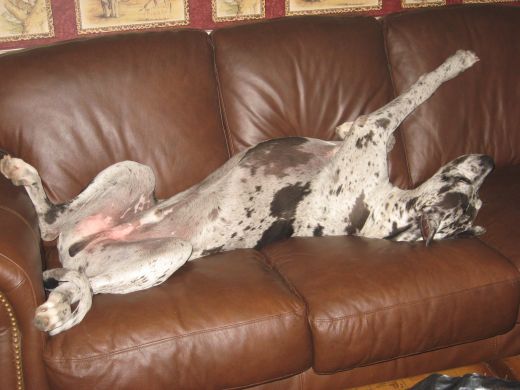
Viral Infection
The upper respiratory condition commonly labeled as kennel cough can be a viral infection. The chief viruses responsible are usually canine herpes virus, canine adenovirus, canine reovirus, canine distemper virus, and/or canine parainfluenza virus. One or more of these viruses is usually inhaled by the dog. The respiratory tract is normally protected by a lining of mucous that has finger-like “hairs” called cilia. Healthy cilia are usually able to get rid of harmful microorganisms, but with a viral infection or bacterial infection like kennel cough, the cilia are unable to do their job because the harmful particles attach themselves to the “hairs.” In some cases, the cilia are actually destroyed. Once a viral infection takes hold, a bacterial infection can follow.
If kennel cough is caused by a viral infection alone, antibiotics are usually ineffective. Viruses mutate easily, making it difficult or impossible for the antibiotic drug treatment to focus on the invader and destroy it.
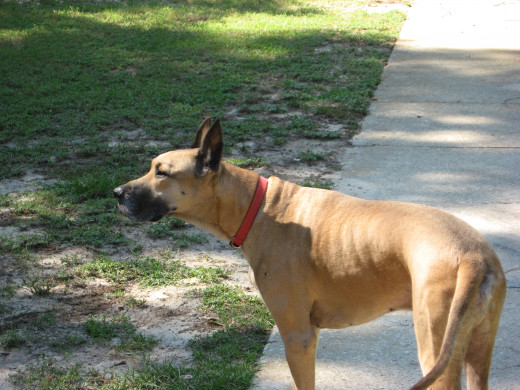
Bacterial Infection - Bordetella
When kennel cough is caused by a bacterial infection, Bordetella is usually responsible. Bordetella is a family of small bacteria that can affect dogs, humans, pigs, and other mammals. Some can also affect birds. In humans, two of the strains, Bordetella pertussis and Bordetella parapertussis, cause whooping cough. Bordetella bronchiseptica is the bacteria responsible for kennel cough in dogs.
When Bordetella enters the nose and pharynx, it adheres to the cilia cells and to immune effector cells. The bacteria multiply quickly and travel to other parts of the respiratory system. Toxins released by Bordetella paralyze and/or destroy the protective cilia, while other toxins help make the bacterial infection invulnerable against the dog’s natural immune system.
Kennel Cough Symptoms:
What kennel cough sounds like:
Kennel Cough Symptoms
Kennel cough symptoms can vary somewhat from dog to dog. Classic symptoms of kennel cough include coughing, gagging, and hacking. Grendel and Sparky both gagged a lot, as if they had something stuck in their throat. Sparky also had a discharge from his eyes, but Grendel never did. Grendel coughed up a clear liquid, and Sparky coughed up a foamy liquid. Overall, Sparky seemed to be sicker than Grendel appeared to be. The hound had shallow, rapid breathing and didn’t seem to have much energy. Any activity would make the coughing worse in both dogs. The coughs in our dogs differed. Grendel had more of hard, dry cough, while Sparky’s cough was usually accompanied by a high pitched honking or squeaking sound, and he coughed up a lot of thick phlegm. Sparky also kept his head lowered and sometimes stretched out his neck, which Grendel didn’t do. One night, Sparky shook uncontrollably. Neither of our dogs had any fever, and their appetite was not affected.
Kayla, on the other hand, was much sicker than either of our pooches. She had a fever, she was very listless, and she stopped eating. Remember – she was nursing four puppies, so her illness was especially concerning. She was taken to her vet yesterday and was found to be dehydrated. Fluids were started immediately, and the veterinarian decided Kayla needed to stay at the animal hospital for a few days, away from her litter. My daughter was given bottles and milk replacer and has to bottle-feed the puppies every two hours and stimulate them to urinate and defecate with a damp cloth.
Kayla’s vet visit was yesterday morning. The vet called last night to report that the mother dog had made a remarkable recovery and was eating, so she might actually get to come home today. Of course, we’re all worried about the pups getting kennel cough, so we’ll be keeping a close eye on them. If Kayla has to stay at the clinic until tomorrow evening, I’ll have puppy-feeding duties tomorrow. That’s okay because one of the male pups, Shylock, will be mine once he’s weaned. I figure the bottle feeding and stimulation will help the little guy bond with me.
There are other kennel cough symptoms that our dogs didn’t exhibit. They include coughing more when eating or drinking, vomiting, and sneezing. Other symptoms of kennel cough that you might notice are a runny nose and an adverse reaction whenever pressure is applied to the trachea, like when pulling on the collar.
Kennel Cough Symptoms:
Respiratory
| Eyes/Nose
| General
|
|---|---|---|
coughing
| runny nose
| loss of appetite
|
sneezing
| white or yellow disharge from eyes
| lethargy
|
gagging
| watery eyes
| fever
|
"honking"
| crusty eyes
| chills/shaking
|
rapid breathing
| thick nasal discharge
| vomiting
|
shallow breathing
| reaction to pressure on throat/neck
| |
snorting
|
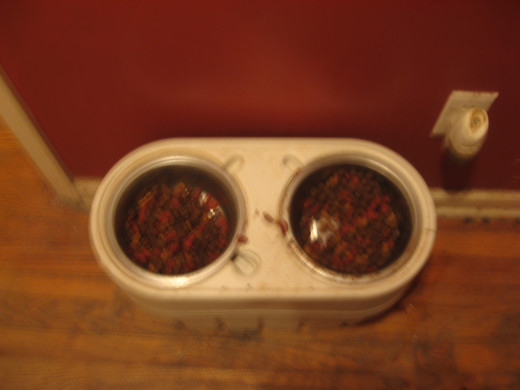
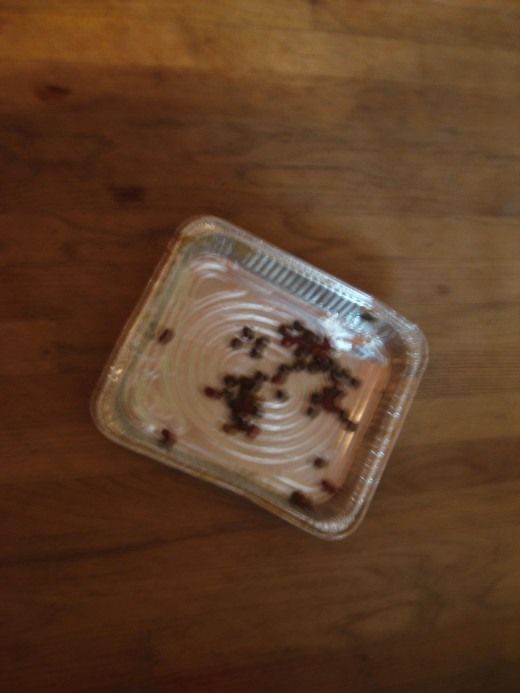
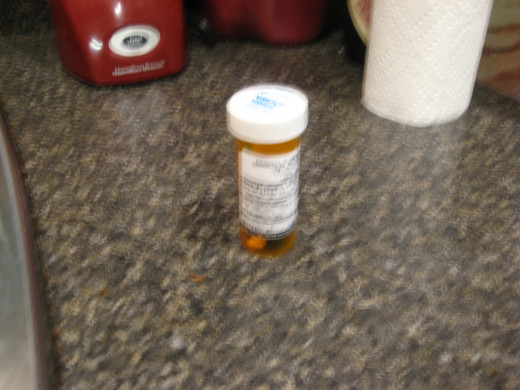
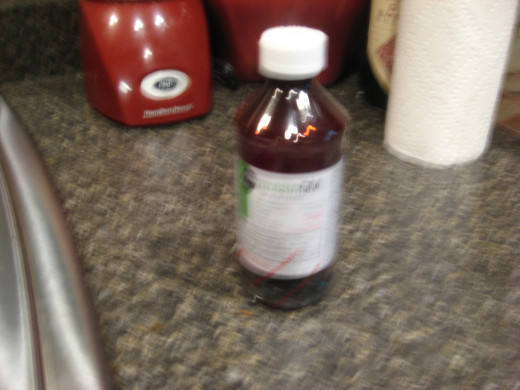
Kennel Cough Treatment
Our vet assured us that kennel cough is rarely fatal. And, in fact, it usually clears up on its own, especially if it’s caused by a viral infection alone. When Bordetella is involved, antibiotics might be prescribed. Sparky is taking 250 milligrams of ampicillin, twice a day. Even though Sparky’s kennel cough is a viral infection, the vet prescribed the antibiotics in case of a bacterial infection with Bordetella. Kayla is receiving IV fluids and antibiotics.
In many cases, kennel cough treatment includes only good home care, like keeping the dog calm and comfortable. Treatment for kennel cough might also include giving the dog cough syrup, making sure it drinks plenty of water, and not letting it get overheated or overly exerted. Another kennel cough treatment that might make your dog more comfortable is to use a humidifier. Breathing in warm, moist air will help soothe irritation and help break up congestion. A dog with kennel cough should be kept away from fumes, smoke, and dust. Something else that helped Sparky was Vick's Vapor Rub. We put some of the ointment on a cloth and placed it near Sparkplug's head while he was resting. Breathing in the vapors seemed to make breathing easier and coughing less. If your dog becomes uncomfortable from pressure on the throat, take it out on a harness instead of clipping the leash to the collar. Some vets recommend giving an infected dog vitamin C and/or honey.
As part of kennel cough treatment, it’s important that you keep an infected dog away from other pets. Remember – it’s not just canines that can be infected. You’ll need to disinfect water and food bowls, too. Also, don’t allow other dogs or pets to play with the sick dog’s toys. Blankets and bedding will need to be washed in hot water and run through the dryer. By the way, your dog can be contagious for weeks after the symptoms of kennel cough have disappeared.
Although kennel cough is rarely fatal, it can lead to more serious infections, including pneumonia. According to our vet, this usually happens only to dogs with compromised immune systems or to canines that are already weak or in poor general health. If your dog has kennel cough and doesn’t seem to improve within a few days, you need to see your veterinarian.
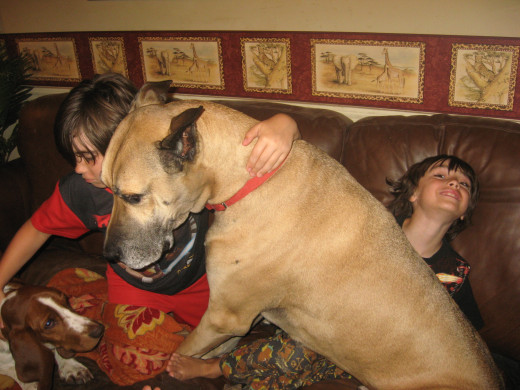
Can Humans Get Kennel Cough?
For years, pet owners were assured that humans could not catch kennel cough. Now, however, veterinarians, doctors, and scientists aren’t so sure. Some research has associated Bordetella bronchiseptica to upper respiratory infections in people, although doctors disagree whether the infection came from canines or not. Humans who seem to be most at risk to Bordetella bronchispetica are the elderly, the very young, and individuals with compromised immune systems. Pregnant women might also be more susceptible.
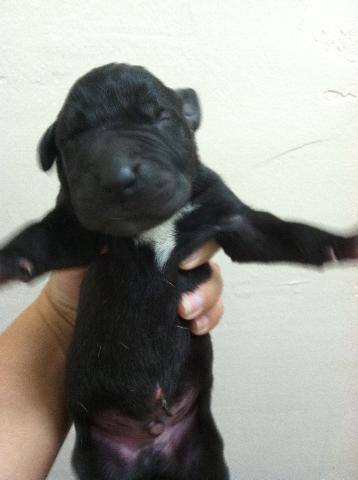
Kennel Cough Vaccine
Each of our dogs was given a kennel cough vaccine upon entering the boarding kennel. The kennel we use is part of our veterinary clinic, and it’s standard procedure for all dogs being boarded to receive a kennel cough vaccine. So how did our dogs still get sick? The vaccine can’t protect against every virus that might cause kennel cough – that would be pretty much impossible. Think of the kennel cough vaccine as the flu vaccine for humans. Even if you get a flu shot, you can still get the flu because there are different strains of flu. A flu vaccine can’t protect against every strain, just as a kennel cough vaccine can’t protect dogs against every viral infection and every bacterial infection that can cause the condition.
Some vets recommend that all puppies and dogs that will come in contact with other dogs be given a kennel cough vaccine schedule. The vaccine can be administered by a shot, by a mist, or by nose drops. The drops can be given to puppies as young as three weeks, and the shot can be given as early as six weeks. Boosters are often recommended for dogs that come in contact with a lot of other dogs, usually given every six months or a year apart. Your veterinarian can guide you here.
The traditional kennel cough vaccine protects dogs against Bordetella, but it can’t protect canines against every virus that might cause kennel cough. Kennel cough symptoms can last for several weeks, but in our dogs, the symptoms of kennel cough persisted for only two or three days. I think they had such mild cases because they’d received the vaccine before they were exposed to the infections.
Kayla, on the other hand, didn’t get the kennel cough vaccine because she was pregnant when she was left at the vet’s kennel. She had her puppies at the vet’s clinic – five live pups, including a tiny runt. The runt died the day after being born, but the other four pups are big, strong, and healthy. They’re eleven days old now, and they’re taking well to the bottle feedings. A heating pad under their blanket is keeping them nice and warm. Since Kayla didn’t get the vaccine, I think that’s why she was so much sicker than our dogs were. Plus, she was probably a little weaker since she was nursing. Our other Great Dane, Hamlet, has not exhibited any kennel cough symptoms…yet. Our vet feels sure that Hamlet will also display kennel cough, but I’m crossing my fingers that he doesn’t.

